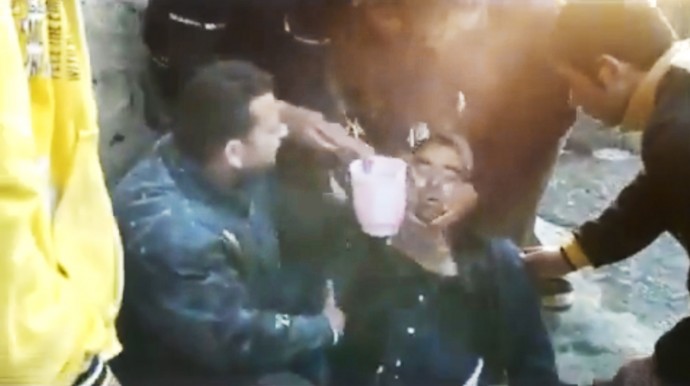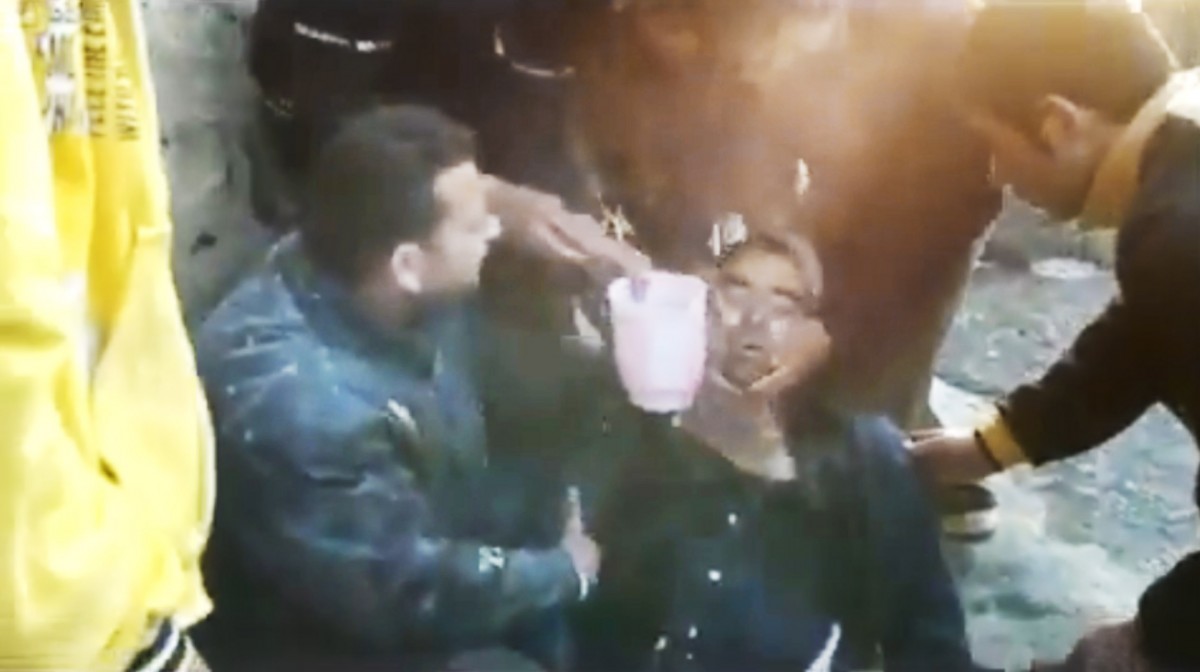
WASHINGTON (AP) — Seeking a new Syria, the Obama administration hopes glimmers of diplomatic progress from U.N. mediator Kofi Annan will accelerate the end of President Bashar Assad’s year of extreme repression.
But as Secretary of State Hillary Rodham Clinton returns to the region to search for a strategy with America’s Arab and European partners, Syria is stuck in the same conflict between a brutal government and an armed rebellion that no nation is certain it wants to support. And it’s unclear what Annan can do to end the bloodshed.
At the State Department, spokeswoman Victoria Nuland lamented further arrests and violence across Syria on Wednesday, and said the Assad regime has clearly failed to live up to the commitments it made to Annan only Tuesday, when Assad agreed to a ceasefire among other conditions. Dozens of people were reportedly killed by Assad’s forces since then.
But Nuland said the US supported international diplomacy efforts and said the administration remained opposed to military intervention.
For the U.S., Syria is proving an especially murky conflict and one with no easy solutions. The battle pits one of Washington’s clearest foes, a government that has long backed Iran and anti-Israel groups Hamas and Hezbollah, against an unknown entity that may be getting support from Islamic extremists or others with questionable intentions.
And unlike Libya, whose leader Moammar Gadhafi inspired worldwide revulsion, Syria still has allies in Russia and Iran and a formidable army of its own.
With no clear path to ending the crisis and Assad’s military clearly in control, the debate among Washington and its allies over how to support Syria’s opposition is taking on added urgency. Saudi Arabia and some others say it’s time to arm the rebels or set up buffer zones for them to operate. President Barack Obama has publicly challenged Assad to leave power, but has refused to entertain U.S. military options to achieve that end.
These issues will be front and center when Clinton arrives Friday in Riyadh, where she’ll meet Saudi King Abdullah and other government officials before joining top officials from all the Gulf Arab States for «strategic cooperation» talks. She is then to participate in Sunday’s 60-nation «Friends of the Syrian People» meeting in Istanbul. More than 9,000 people have been killed in Syria since last March.
At a Friends of the Syrian People meeting earlier this year in Tunisia, the nations issued an ultimatum to Assad to end the hostilities, but it was roundly ignored.
Asked what might constitute success for this weekend’s meeting, Nuland demurred. «We want to see as much unity as possible among those members of the opposition,» she said, adding that conversations also would focus on humanitarian aid and further isolating Assad’s government — the same agenda as February’s gathering in Tunisia.
But equally pressing questions may be surfacing. Despite U.S. and Arab assertions about the inevitability of the Assad regime’s fall, it is prevailing militarily and maintaining some support among Syrian minorities and even the Sunni business community. Defections have proved fewer than anticipated, and there’s little evidence to back Clinton’s prediction a month ago about a possible military coup.
That leaves those doing the actual fighting in Syria at the forefront of the anti-Assad resistance, without a clear mandate of support from abroad. American officials say they sympathize with the plight of Syrians who’ve been forced to take up arms to defend themselves, but they are directing their efforts through a Syrian opposition leadership of lawyers, academics and emigres. And that policy is expected to continue.
Speaking Tuesday, Clinton cautiously welcomed the Syrian government’s endorsement of Annan’s plan, which calls for an immediate cease-fire with rebels and an eventual democratic transition. But Assad now has to make good on the deal, she said, citing the Syrian leader’s «history of overpromising and under-delivering» when it comes to pledges of peace and reform.
The early signs were inauspicious. Government forces on Wednesday captured the rebels’ northern stronghold of Saraqeb, a town on the main highway from Aleppo, after four days of fighting. More than 40 people were killed and homes were burned down, activists said, describing the latest setback against better-equipped Syrian military units.
In Congress, a growing number of lawmakers is demanding greater U.S. action.
A group of Republican senators and Independent Sen. Joe Lieberman of Connecticut on Wednesday introduced a nonbinding resolution that condemns the Assad regime’s alleged atrocities. Several senators also criticized Obama’s response thus far.
«How many have to die before the United States will take a leadership role to end the mass slaughter?» asked Sen. John McCain, R-Ariz., Obama’s 2008 presidential rival.
«How can you sit on the sidelines when it comes to Syria?» echoed Sen. Lindsey Graham, R-S.C. «The United Nations is fiddling while Syria is burning.»
The resolution urges the president to partner with Arab countries in providing Syrian rebels with the means to defend themselves, including weapons. It stops short of calling for American airstrikes in Syria, which McCain previously has proposed.
But the administration says it won’t get involved in what is essentially a civil war.
Clinton said the U.S. and its allies would spend the next few days helping Syria’s primarily Sunni opposition refine its vision of an inclusive democracy, to assure minorities still supportive of the government that they’d have a place in a post-Assad future. She said Washington hoped for progress on that front this weekend.


